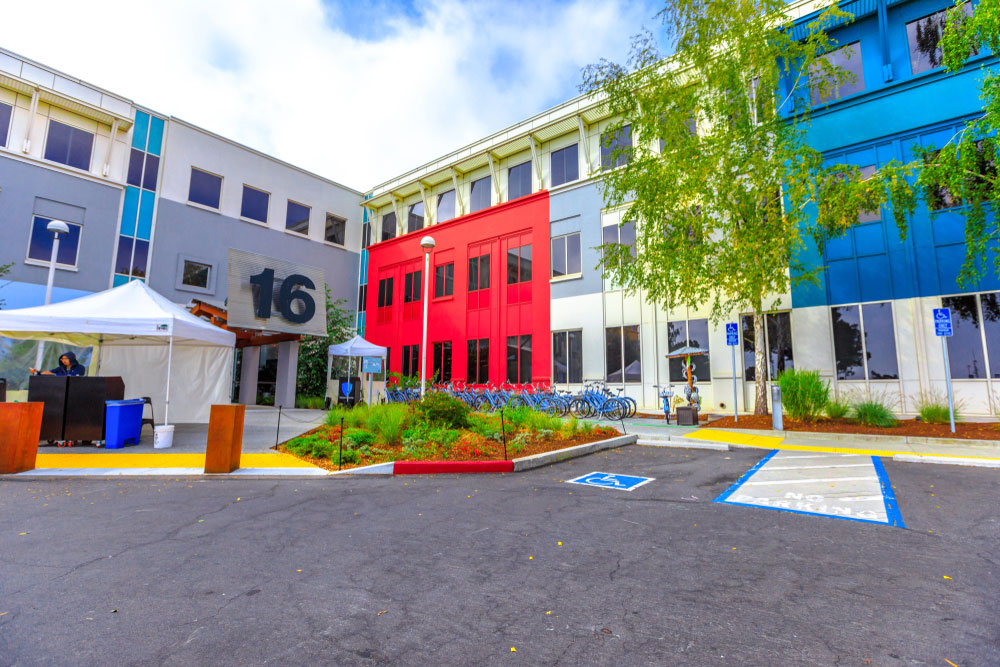Sandwiched between Building 20 and Building 21 in the heart of Facebook’s campus, an approximately 25-foot-by-35-foot conference room is under construction.
Thick cords of blue wiring hang from the ceiling, ready to be attached to window-size computer monitors on 16 desks. On one wall, a half-dozen televisions will be tuned to CNN, MSNBC, Fox News and other major networks. A small paper sign with orange lettering taped to the glass door describes what’s being built: “war room.”
Although it is not much to look at now, as of next week the space will be Facebook’s headquarters for safeguarding elections. More than 300 people across the company are working on the initiative, but the war room will house a team of about 20 focused on rooting out disinformation, monitoring false news and deleting fake accounts that may be trying to influence voters before elections in the US, Brazil and other countries.
“We see this as probably the biggest company-wide reorientation since our shift from desktops to mobile phones,” said Samidh Chakrabarti, who leads Facebook’s elections and civic engagement team. The company, he added, “has mobilised to make this happen”.
The misuse of Facebook by foreign influence campaigns has been rampant. In July and August, the company detailed previously undisclosed efforts by Iranians and Russians to mislead users of the social network through divisive ads and posts.
Now, with the midterm elections in the US just seven weeks away, Facebook is in an all-out sprint to convince the world that it is ready to handle any new attempts at such meddling. The company is under tremendous pressure to prevent a repeat of the foreign manipulation that unfolded on the social network during the 2016 presidential campaign.
Mark Zuckerberg, Facebook’s chief executive, has vowed to fix the problems, and he said this month that the company was “better prepared” to handle potential interference.
The company has taken steps to build defences against spammers, hackers and foreign operatives — including hiring thousands of people to help moderate content and starting an archive to catalogue all political ads — but the war room’s half-finished state shows how nascent and hurried many of the efforts are.
Already, foreign operatives have evolved their online influence campaigns to skirt the measures Facebook has put in place ahead of the midterms, said Priscilla Moriuchi, director of strategic threat development at the cybersecurity firm Recorded Future.
“If you look at the way that foreign influence operations have changed these last two years, their focus isn’t really on propagating fake news anymore,” Moriuchi said. “It’s on augmenting stories already out there which speak to hyperpartisan audiences.”
One of the tools the company is introducing is custom software that helps track information flowing across the social network in real time, said Chakrabarti, who joined Facebook about four years ago from Google.
These dashboards resemble a set of line and bar graphs, with statistics that provide a view into how activity on the platform is changing. They allow employees to zero in on, say, a specific false news story in wide circulation or a spike in automated accounts being created in a particular geographic area.
The dashboards were first tested before the special US Senate election in Alabama in December.
Since then, Facebook has tested and redesigned the software during multiple elections worldwide. This month, before Brazil’s presidential election, the company will introduce the newest versions of the dashboards, Chakrabarti said.
Facebook created what it calls its elections and civic engagement team in 2007 to work with governments and campaigns on how they could use the social network most effectively.
Since then, the team has mushroomed to its current size, augmented by other people at the company whose jobs involve some aspect of stopping election interference. Facebook has said each of its units — including Instagram and WhatsApp — has been told to make election security a top priority when designing products.
Chakrabarti meets several times a month with Facebook’s top executives, engineers and product managers.
The war room construction began a few months ago, and the room, with its whiteboard walls and clusters of long tables, is set to open for operations on Monday.
What happens in the war room will be a “last line of defence” for Facebook engineers to quickly spot unforeseen problems on and near election days in different countries, Chakrabarti said. Many of the company’s other measures are meant to stop disinformation and other problems long before they show up in the war room.
Once a problem reaches the war room, the dashboards will be set to spot and track unusual activity, while data scientists and security experts take a closer look. Chakrabarti said the team was particularly on guard for posts that manifested “real-world harm”, and planned to remove posts that tried to disenfranchise voters by giving incorrect polling data or spreading hoaxes like encouraging people to vote by text message.
“The best outcome for us is that nothing happens in the war room,” he said. “Everything else we are doing is defences we are putting down to stop this in the first place.”










